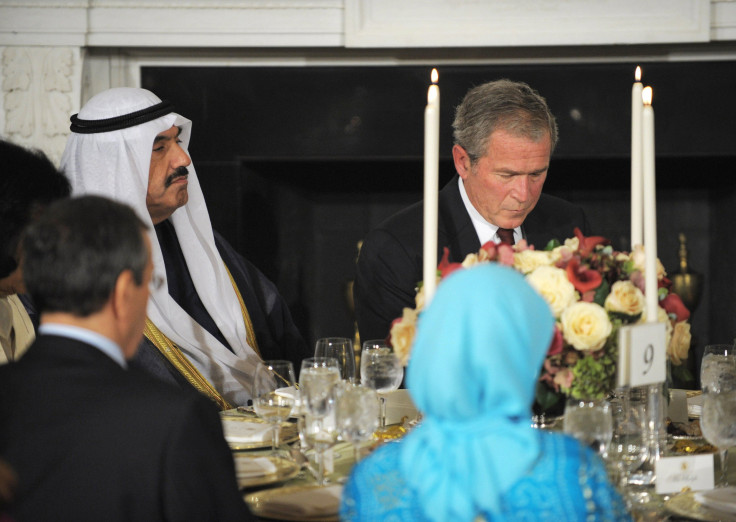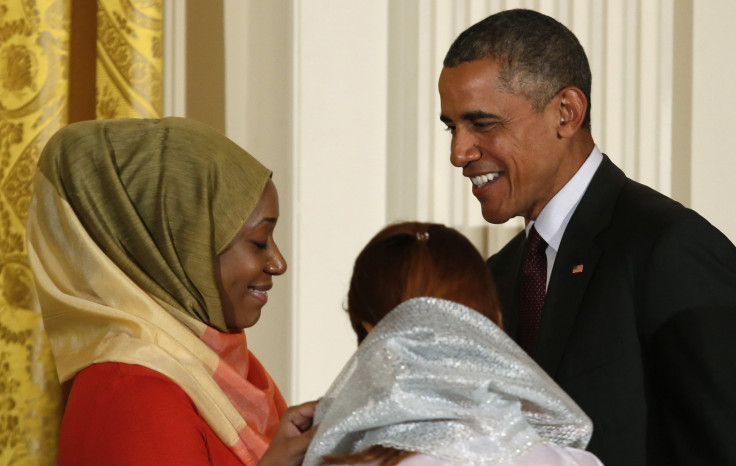Trump Foregoes White House Iftar Dinner, Muslim Leader Says 'We're Not That Important'

President Donald Trump has foregone the tradition of holding an iftar dinner, commemorating the end of Ramadan, at the White House this year, which has been hosted by former presidents every year. Instead, Trump chose to simply issue a short statement Saturday, wishing Muslims “Eid Mubarak.”
“On behalf of the American people, Melania and I send our warm greetings to Muslims as they celebrate Eid al-Fitr,” the statement said, CNN reported. “Muslims in the United States joined those around the world during the holy month of Ramadan to focus on acts of faith and charity. Now, as they commemorate Eid with family and friends, they carry on the tradition of helping neighbors and breaking bread with people from all walks of life.”
The tradition in question began under the administration of former President Bill Clinton in 1996 and has been followed by former presidents George W. Bush and Barack Obama in the past. Many prominent leaders of the Islamic community have attended these dinners.
Read: Eid Al-Fitr 2017 Date, Moon Sighting: Why Muslims Celebrate End Of Ramadan On Different Days

Imam Talib Shareef of the Nation’s Mosque in Washington, D.C., condemned Trump’s refusal to host the iftar dinner.
“It is disappointing because that’s been a good tradition,” Shareef told Newsweek Friday. “To stop it doesn’t send a good message. You get the chance to go golfing and all this other kind of stuff. How come you don’t have time for a population of your society that needs some assistance? The message that it sends is that we’re not that important.”
In contrast, Shareef praised the Obama administration for carrying out the traditional dinner beautifully in the past, three of which Shareef he attended.
“Him being able to bring Muslims there to speak to what he knows to be the true spirit of what Islam is all about is comforting, and it makes you want to be productive because now you feel welcome, you feel a part of society,” he said.
Read: DOJ Wants Supreme Court To Revive Trump's Travel Ban
Obama had spoken passionately about Muslim Americans and how special the occasion of Ramadan is to the Islamic community in an official statement on June 6, 2016, amid Trump’s anti-Muslim rhetoric during his election campaign.
“Upon the arrival of a new crescent moon, Michelle and I send our warmest greetings to all those celebrating Eid al-Fitr in the United States and around the globe. For Muslim Americans, Eid is an opportunity to reflect on the 30 days spent fasting and to recommit to values of gratitude, compassion, and generosity,” he stated in a long statement.

Just like Obama, Bush too had kept up with the tradition of hosting the end of Ramadan feast at the White House during his two terms. He did not forego the tradition even after the 9/11 attacks, Independent reported.
Shareef also stated that Trump should have recognized that the dinner was the perfect opportunity to bridge the distrust that had developed between his administration and the Muslim community after the president introduced a travel ban that seeks to prohibit people from a number of Muslim-majority countries from entering the United States.
Similarly, Secretary of State Rex Tillerson rejected a request by the State Department's Office of Religion and Global Affairs to host a reception marking Eid al-Fitr, another tradition that started with the White House hosting iftar dinners.
© Copyright IBTimes 2024. All rights reserved.












